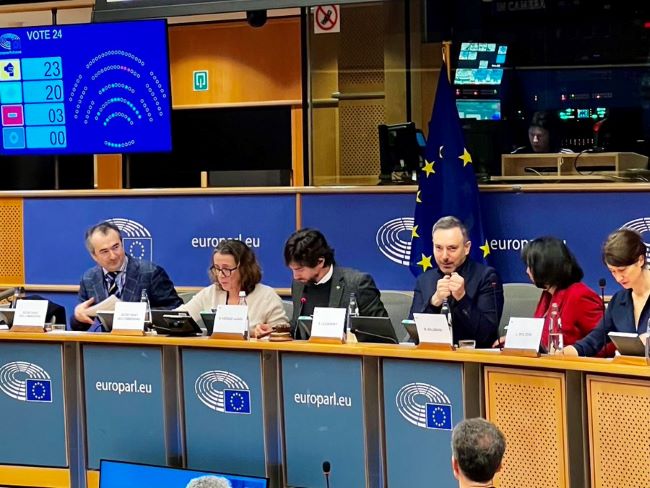Non-profit associations represent the predominant legal form among non-profit organisations in the EU, with an estimated number of 3.8 million contributing 2.9% to EU GDP. Around 310 000 non-profit associations involved in sectors with a societal impact such as healthcare, social services, social inclusion, sports or education are active in more than one EU country. Over the years, the European Parliament has stressed the role of non-profit organisations in the EU economy and in building up a democratic civil society. The European Commission responded to its call in September 2023 with a proposal aimed to create an enabling environment for the non-profit sector associations.
With 20 votes for, no votes against and 3 abstentions, MEPs of the Legal Affairs Committee approved draft rules aimed at removing barriers to the cross-border activities, funding and mobility of non-profit associations in the EU. The new legal form of the European cross-border association (ECBA) would be automatically recognised across the EU and would facilitate associations‘ mobility as well as access to public funding in the EU. It is expected to save 770 million euro every year on administrative and compliance costs. Draft legislation should also ensure legal certainty for the cross-border associations, currently governed by independent national laws with diverging rules and requirements, hampering their full economic and societal potential.
ECBAs to be protected from unjustified national restrtictions
Proposal contains rules concerning statutes, governance and membership of the European associations, procedure for the transfer of their registered office to another EU country and rules on EU-wide recognition of a registered ECBA. ECBA would be created by registration with at least three founding members, natural or legal persons, with links to at least two EU countries or by conversion of an existing non-profit association. MEPs also added a merger of non-profit entities into ECBA among establishment possibilities. ECBA should have a decision-making and an executive body and a non-profit character. An ECBA certificate, existing in a unified template in all EU languages will be issued upon registration. EU countries will not be able to apply the restrictions related to nationality, residence, physical presence or participation in public matters on ECBAs and their members. ECBAs should be able to apply for funding and receive it from a public or private source without discrimination.
ECBA committee to advise Commission
Although the Commission excluded political parties, trade unions and churches from establishing ECBAs, MEPs suggest churches should be allowed to do so and trade unions could become their non-founding members. EU countries should establish an ECBA register and designate an authority to monitor and enforce the rules related to ECBAs. While dissolution of ECBA should be a voluntary decision of its decision making body, EU countries will be able to dissolve an ECBA as a last resort in case the ECBA or its representatives are breaching EU values or are convicted for a serious criminal offence such as terrorism or human or drug trafficking. In case of transfer of ECBA’s office, MEPs want the association to prepare a report explaining the safeguards for its creditors and employees. The Commission should create an ECBA committee composed of representatives of each member state to monitor implementation of the directive, issue guidelines and exchange information and experience on ECBAs.
Following the vote, rapporteur Sergey Lagodinsky (Greens/EFA, DE) said: “With the introduction of European cross-border associations, we are taking a decisive step to elevate the status of non-profit organizations and put them on an equal footing with commercial representations in Europe. Today is a great day for civil society and democracy in Europe!”
The draft report will now be put to a vote at an upcoming plenary session and will constitute Parliament´s position at first reading.The file will be followed up by the new Parliament after the European elections on 6-9 June.

